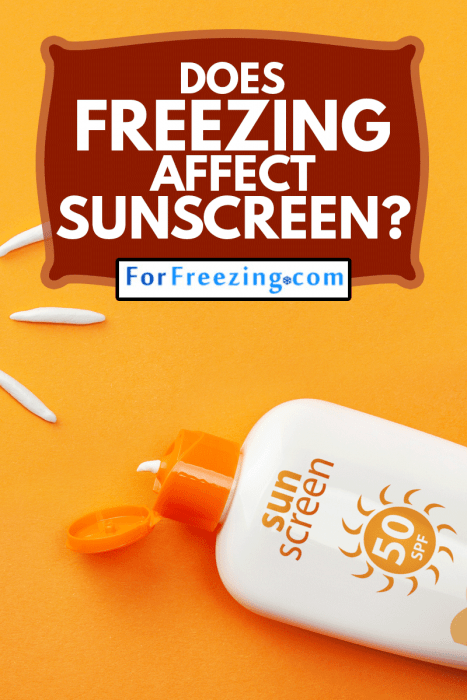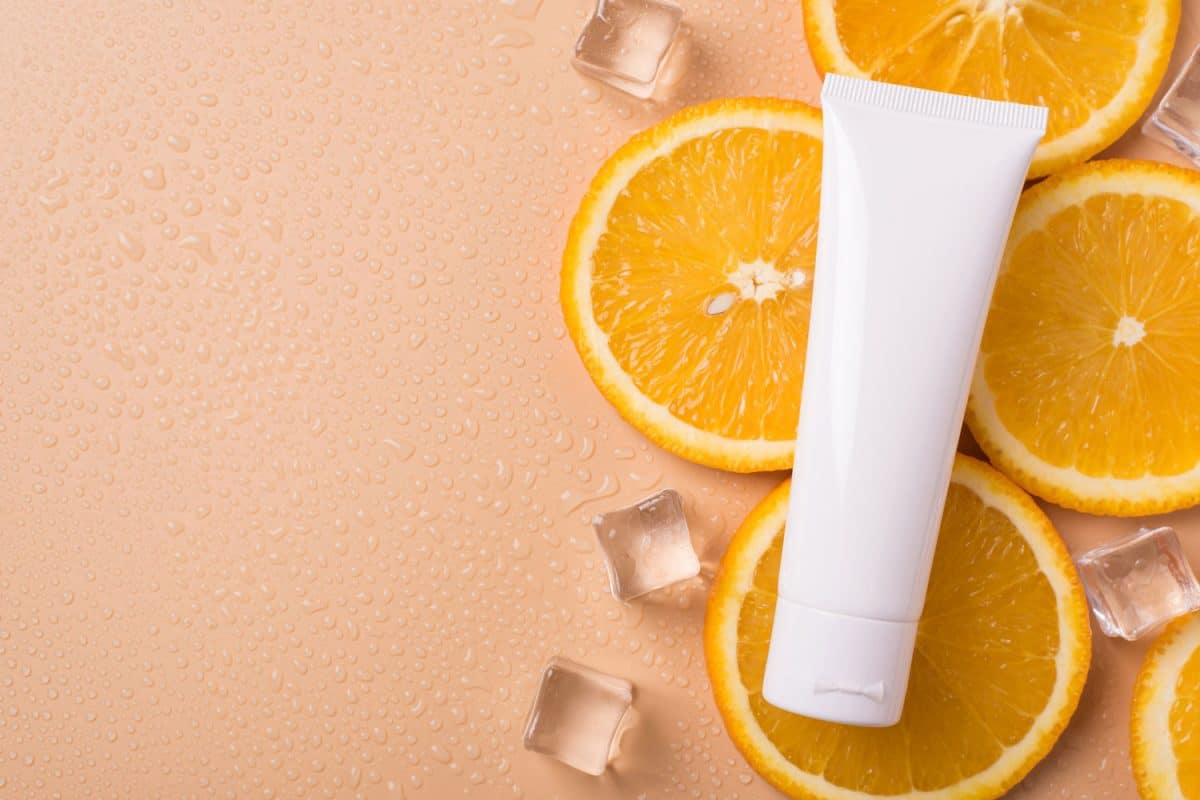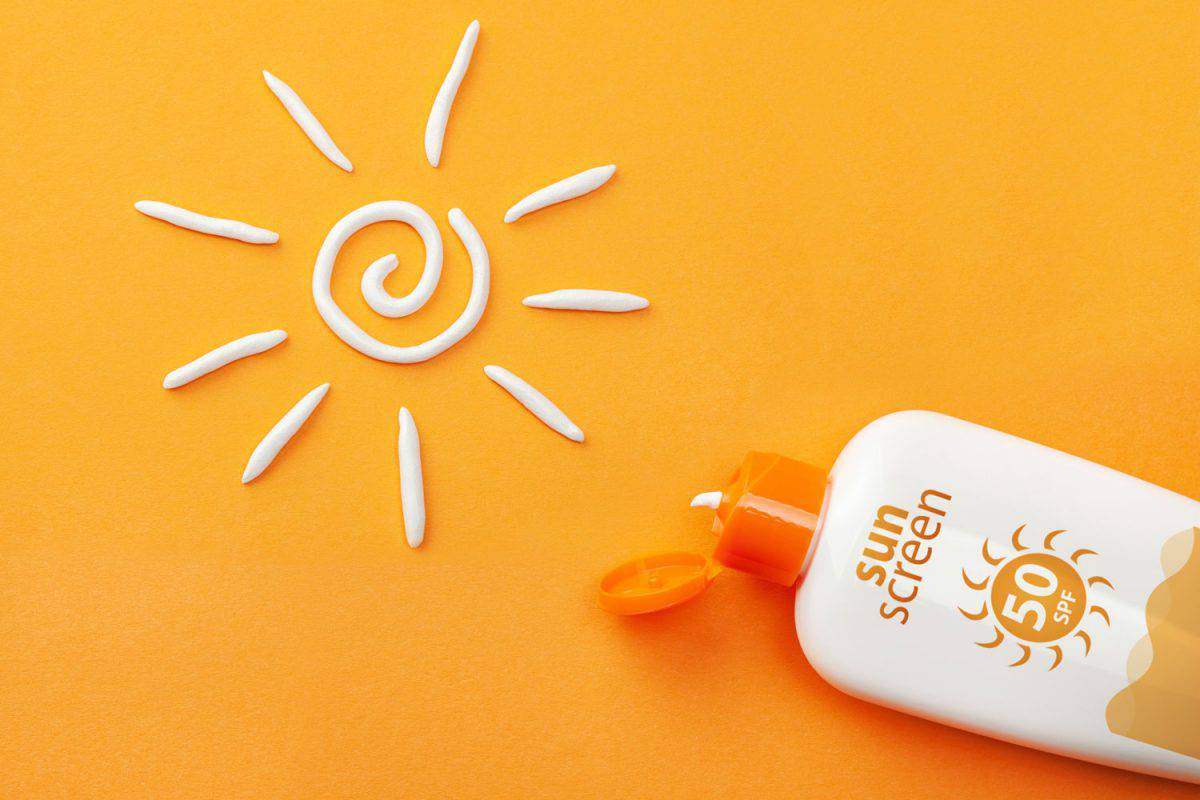Freezing affects sunscreen in a big way. It is a huge determinant in how one should store sunscreen until the next use. This article dives into how it affects and possible remedies to ensure your sunscreen retains its quality and ability to reuse.
Never subject sunscreen to too low a temperature or one that is too high. Extreme conditions of temperatures will either freeze or overheat your sunscreen. This will in turn render the chemicals in the sunscreen inactive and therefore ineffective in the protection against harmful sun rays.
Let us explore sunscreen in-depth, its chemical composition, and how various storage conditions will affect the durability and freshness of your sunscreen. We'll also see how and why freezing and options like refrigeration are advised against. So be sure to keep reading.
NOTE: WE MAY GET A COMMISSION IF YOU DECIDE TO MAKE A PURCHASE THROUGH THESE LINKS. THERE'S ADDITIONAL NO COST TO YOU. CHECK THE BOTTOM OF THE PAGE FOR MORE INFORMATION.

What Is Sunscreen?
Sunscreen is a matter that scatters, reflects, or even absorbs radiation of Ultraviolet nature. Once mixed with cream and lotions then applied on the skin, protection is offered against the cancer-causing rays of the sun.
Continued exposure to the ultraviolet rays emanating from the sun may lead to skin defects and diseases such as the skin aging before its time, cancer of the skin, and sunburns.
In order to gain a better comprehension of these reactions, it is important that we look at the composition of sunscreen chemically.
What Is Contained In Sunscreen?
Sunscreen has several ingredients. Some are inactive while some are active moisturizers. They can be largely grouped into either mineral or organic nature. Organic compounds or chemical compounds have molecules in them that contain carbon.
These molecules are responsible for the absorption of light in sunscreens. The molecules are structured to absorb UV rays of high energy and then release them as rays of lower energy. The UV rays do not, therefore, reach the skin. These molecules include avobenzone and octinoxate.
Organic compositions found in sunscreen will, over a period of a few years, deteriorate and become inactive. It is important to take note of the expiration date.
Mineral compounds or inorganic compounds such as zinc oxide or titanium dioxide can be found in sunscreens of mineral nature. These compounds contain particles that will scatter, absorb, and reflect UV light. Titanium dioxide in particular is a great material for filtering UV rays.
Do Sunscreen Products Expire?

Just like a lot of products, sunscreen too has a shelf life and can go bad. It is not uncommon to find expiration dates on sunscreen bottles. As a matter of fact, this should be a factor to consider when selecting your sunscreen.
If the liquid is less viscous or it is no longer a uniform mixture and the ingredients have separated, it has gone bad. It will be of no assistance, sometimes even adding on to the sunburns.
Sunscreen subjected to extreme temperatures and one that has gone past the expiration date is ineffective against ultraviolet rays.
How Can You Store Sunscreen?
Sunscreen requires a storage place away from light. Light tends to cause the ingredients that make up the sunscreen to separate. Avoid storing your sunscreen bottles near windows as direct sunlight is prone to hit and reach the bottle. Dark areas like closets and cabinets are ideal for storing sunscreen. Another advantage of a place like the closet is that it has room temperature, which is ideal for sunscreen storage.
Sunscreen is supposed to be kept in storage at a temperature between 59 and 86 degrees Fahrenheit. Temperatures that go below 59 degrees will interfere with molecules of the oxides in the minerals, freezing them over.
When it comes to action time, the sunscreen compound would have been made powerless.
On the other hand, temperatures exceeding 86 degrees will tend to activate the compounds of the sunscreen way ahead of their time. Some will be overheated, thus getting destroyed or losing their bonds and getting disintegrated.
Humidity is also another aspect to consider when picking out the suitable location to store your sunscreen when not using it. Moisture will bring forth a chemical imbalance, making the sunscreen compound unstable. This may be as a result of additional hydrogen oxide molecules. Molds also have a tendency to breed and grow in such an environment.
Silica gel bags may prove to be quite the treasure when it comes to helping keep your sunscreen storage environment free of moisture.
Additional Related Questions
Can you use sunscreen after it has frozen?

Cold air freezes water droplets which combine with the sunscreen. Once under UV light, hydrogen peroxide is produced. This is far from the expected result of sunscreen or sunblock. It is advisable to keep your sunscreen at a storage location that is dry and at room temperature.
This is to avoid your sunscreen creating favorable conditions for the habitation of viruses and molds. Once sunscreen has frozen, it cannot be used again. It needs to be thrown out.
Should you keep sunscreen in the fridge?
It is the norm in modern society to store some beauty and skincare products inside refrigerators. This, in turn, adds to the shelf life of the stored items.
Sunscreens specifically may be adversely affected by freezing conditions in the fridge. If there is a need to store it this way, the fridge’s temperature should be regulatable so as to maintain an approximate of or the room temperature itself. This would probably be during the warmer seasons.
How long can you store sunscreen?
Mineral sunscreens or physical sunscreens will have a life of six months up to two years. Chemical, on the other hand, or conventional, sunscreens can last up to three years.
Summary
Seeing as to how essential sunscreen is in the protection of your skin, it is necessary to ensure that you store it in the proper conditions such as minimum moisture, an area free of direct sun rays, and lastly, ensure it is stored under room temperature. This then ensures that the active compounds in the sunscreen remain active until the next reuse.



